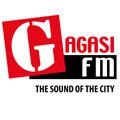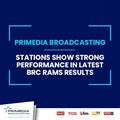After what can be deemed as one of the most tumultuous periods in modern day history, businesses can finally begin to breathe again.
The start of the Covid-19 pandemic in early 2020 brought with it unprecedented levels of uncertainty and disruption to our lives and operations alike. Now with various exercises by both the private and public sector to curb the spread, normalcy, albeit a new form of it, is on the rise.
The question however in our world of radio remains, what does the business look like going forward? Newly appointed managing director of Gagasi FM, Minenhle Dlamini and Heart FM managing director, Renee Redelinghuys, shared their outlook for the future of broadcast post the pandemic.
Ushering in new data sets and points of analysis
With little to no data available from the traditional monitoring channels since the start of the pandemic, Dlamini and Redelinghuys’ stations leaned on their ancillary platforms such as existing digital survey tools, social media, web and in-station mobile apps to monitor audience trends. The first-party data approach provided them with near real-time insights into the listenership patterns that strengthened internal decision-making processes.
Speaking on Gagasi FM’s trends, Dlamini highlighted that, “There has been an increase in audience engagement. People are staying on their radios and the Gagasi FM app to get informed, and they really want to know what their leaders are saying.”
Digging deep into digital
As witnessed in other sectors, the pandemic also brought with it the rapid adoption of digital solutions. For Heart FM in particular, this saw the station spearheading a more concerted effort to enhance their audience’s listening experience through adding live video streams to their broadcast options as well as increasing audio-on-demand solutions in the form of podcasts and station vlogs.
“Watching radio is the new normal. However, it remains important to prioritise offering great content to keep the audience engaged,” Redelinghuys shares. It’s a principle that has served the station well as it, in turn, empowered them to offer advertisers more hybrid campaigns that seamlessly converged social media, on-the-ground and on-air.
Don’t be quick to proclaim the death of radio
While multiple industries continue to be shaken to their core by advances in technology and increasingly segmented audience attention, radio remains steadfast as a stalwart of broadcast.
Redelinghuys puts it concisely when she points out that “Radio is accessible, it comes at ‘no’ cost. And unlike other media, you can still do other things while tuning into radio.” It is this simplicity in the medium that ensured that not only did it successfully weather the Covid storm, but it also remains poised to continue to offer great value to both its audiences and advertisers alike.
For brands in particular, Dlamini offered some invaluable advice, “It is the brands that make the effort to immerse themselves in the cultures of their audiences and make decisions based off insight and not assumptions that will truly win.” This is why Gagasi FM continues to make an effort to aide its advertisers in aligning and understanding the nuances of the people of KwaZulu-Natal.
And so, it is through this re-imagined outlook on the radio landscape that both Gagasi FM and Heart FM seek to continue to forge a path in the media landscape that will keep them atop the totem pole of the business of radio.








































